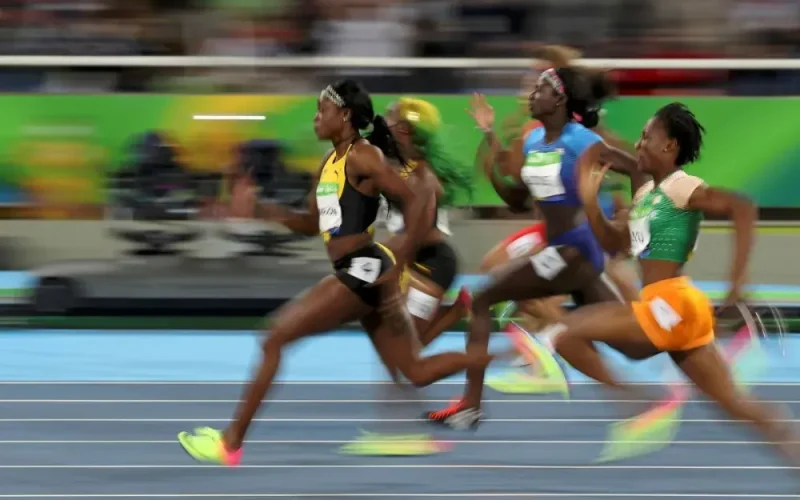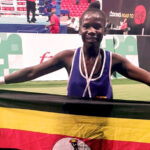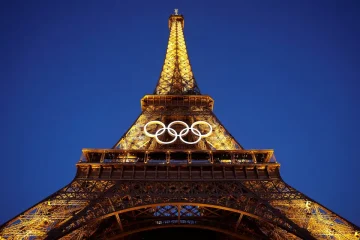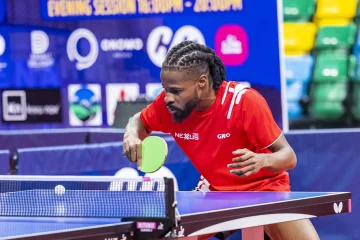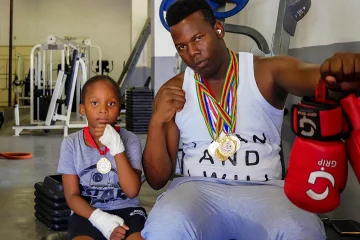THIS year’s Olympics in Paris are set to make history as the first Games to field as many women competitors as men, 128 years after the first modern version of the ancient Greek competition was held – with no women allowed.
The founder of the modern Olympics, Pierre de Coubertin, said women’s participation would be “uninteresting, unaesthetic and improper”, arguing that the Games were for the “exaltation of male athleticism” with “female applause as reward”.
Although the ban was short-lived women only accounted for 22 competitors at the first Paris Games in 1900, barely 2% of the total. This summer, 5,250 women will participate.
It has been a long haul to parity with women excluded from some events, like boxing, weightlifting and the pole vault, for more than a century.
And while the 2024 Games mark a milestone, women remain hugely under-represented in top sports jobs and elite coaching. Only 13% of coaches at the 2021 Tokyo Games were women.
Here is a timeline of key events on the road to parity:
1896 – Women are excluded from the first modern Olympics in Athens.
1900 – Women account for 22 of the 997 athletes at the Paris Games. They compete in tennis, sailing, croquet, equestrianism and golf. American-born Swiss Countess Hélène de Pourtalès, a sailor, becomes the first woman to win an Olympic gold medal.
1904 – Women’s archery introduced
1924 – Women’s fencing added
1928 – Women’s athletics and gymnastics added
1956 – Soviet gymnast Larisa Latynina, 21, makes her Olympic debut in Melbourne, winning gold in the all-around event. She went on to win 18 Olympic medals, a record only surpassed in 2012 by U.S. swimmer Michael Phelps.
1968 – Mexican athlete Enriqueta Basilio becomes the first woman to light the Olympic cauldron.

1976 – Women’s rowing added, more than 70 years after it was introduced for men.
1976 – In Montreal, Romania’s 14-year-old Nadia Comăneci becomes the first gymnast to receive a perfect score of 10 for her performance on the uneven bars. The scoreboard showed a mark of 1.00 as it could only record three digits. Comăneci achieved six more 10s during the contest.
1980 – Women’s hockey added, 72 years after it was introduced for men.
1981 – Venezuelan sportswoman Flor Isava Fonseca and Finnish sprinter Pirjo Häggman become the first two female members of the International Olympic Committee (IOC). Women now make up 41% of members.
1984 – Women’s marathon and cycling added. Men have competed in both events since 1896. Joan Benoit Samuelson of the United States wins gold in the marathon.

1984 – Morocco’s Nawal El Moutawakel, a pioneer for Arab and African sportswomen, wins the inaugural women’s 400m hurdles and her country’s first Olympic gold medal.
1990 – Isava Fonseca becomes the first woman on the IOC’s executive board.
1991 – The Olympic Charter is amended to stipulate that any new sport seeking to join the Olympic programme must have at least one women’s event.
1994 – At 13 years and 85 days old, South Korea’s Kim Yun-Mi becomes the youngest Olympic gold medalist in history, winning for speed skating at the Lillehammer Winter Olympics.
1995 – Creation of IOC Women and Sport Working Group to advance gender equality.
1996 – The IOC amends the Olympic Charter to enshrine the promotion of women in sport. The IOC sets itself a target of having 20% of decision-making positions held by women by 2005.

1996 – Women’s football is introduced in Atlanta with the United States taking gold. Football was included for men in 1900.
1997 – U.S. rower Anita DeFrantz becomes the first female IOC vice president. There have been three more since then.
2000 – Women’s pole vault and weightlifting added at the Sydney Games. Both featured for men in the first 1896 Games. Women’s taekwondo, triathlon and modern pentathlon are also introduced.
2004 – Women’s wrestling was added at the Athens Games. Wrestling – part of the ancient Olympic Games – has featured in almost every modern Games since 1896.
2012 – At the London Games, women compete in all sports for the first time after women’s boxing is added with Britain’s Nicola Adams winning gold. Men’s boxing was added in 1904.
2018 – The Youth Olympic Games in Buenos Aires are the first gender-balanced Olympic event.
2021 – New guidelines at the Tokyo Games – postponed by a year because of the COVID-19 pandemic – allow one male and one female athlete to jointly carry their country’s flag during the opening ceremony, increasing the visibility of female competitors.
2024 – Equal numbers of men and women will participate for the first time in Paris. The Games, which have traditionally closed with the men’s marathon, will close instead with the women’s marathon.
- Context is powered by the Thomson Reuters Foundation Newsroom

